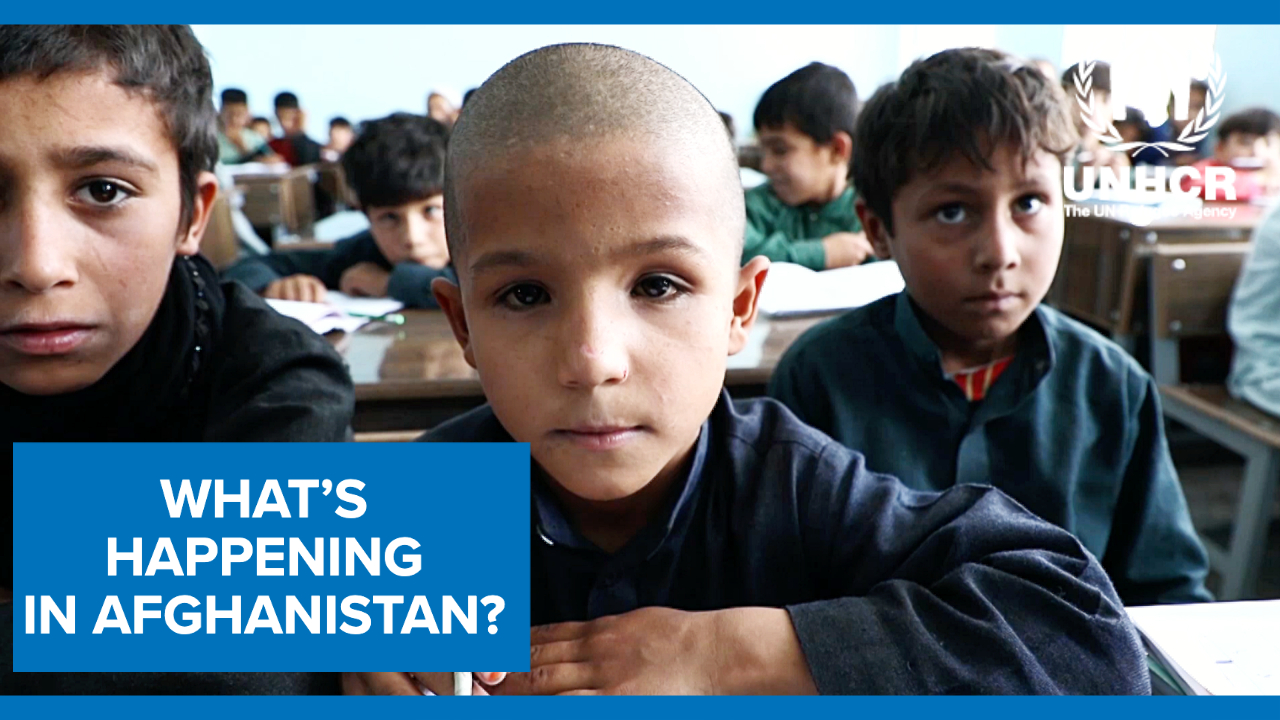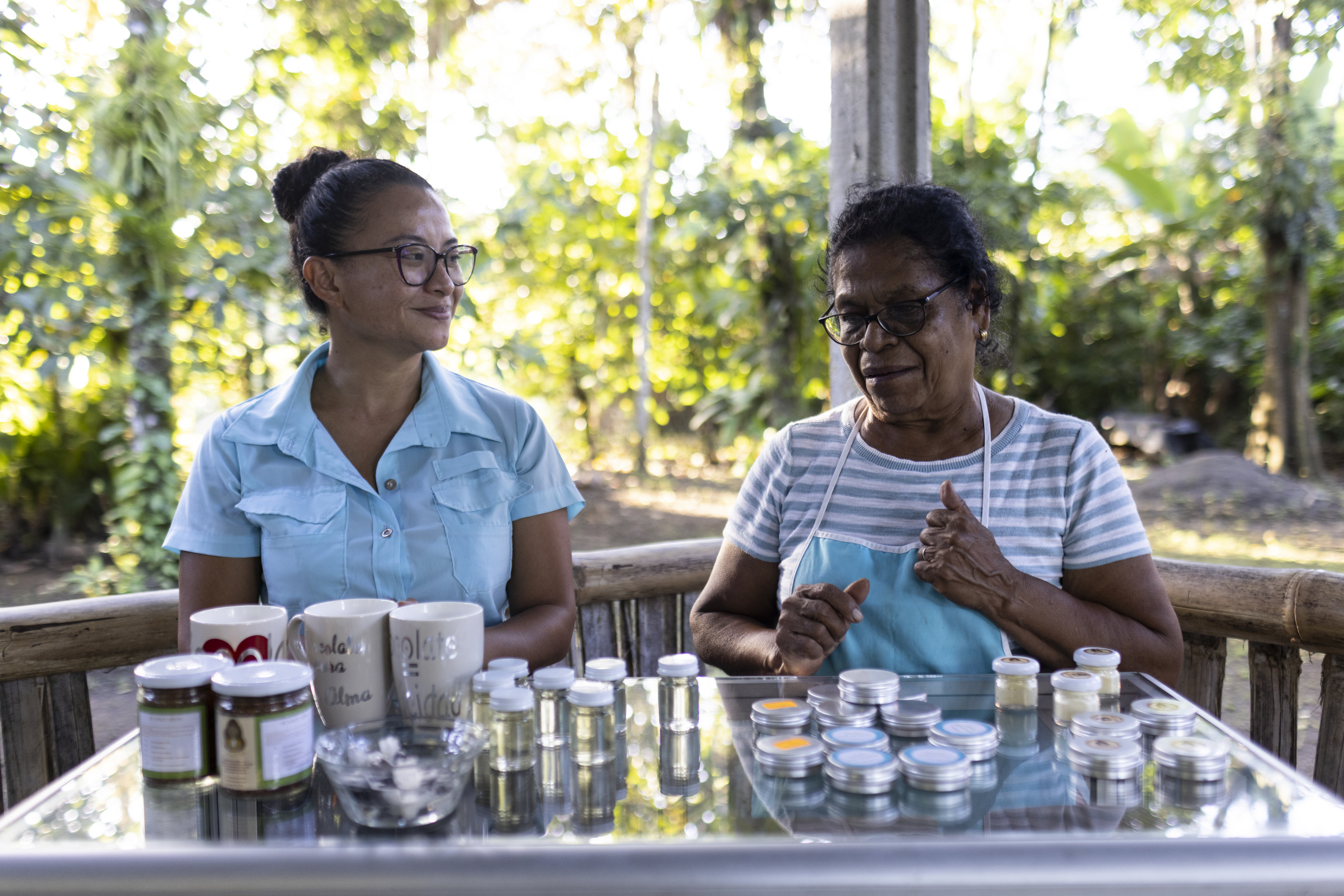Feature: UNHCR helps women to heal the wounds of war in Tajikistan
Feature: UNHCR helps women to heal the wounds of war in Tajikistan

KURGAN TUBE, Tajikistan (UNHCR) - As refugees the world over discover, the end of civil war and the return home are just the first steps in the slow process of rebuilding shattered lives.
In Tajikistan, the UN High Commissioner for Refugees and its local partners have focused on reintegrating some of the most vulnerable of those driven from their homes by the 1992-97 war - the women, and the children they must support with little male help.
Some are widows, others have not heard from husbands since they left seeking work in other countries, especially Kazakhstan and Russia, leaving them with large numbers of children and no income.
"Most of them have many children - nine or 10 - and most of their husbands left four or five years ago and never returned," said Dilbar Nazarova, the supervisor of a project backed by UNHCR and the World Food Programme at the border town of Dusti. "These women have to support their families on their own. They are now independent and able to get income from the project."
Nazarova, herself a returned refugee, oversees a project where women have been developing embroidery skills aimed at meeting a demand for clothes for special occasions like weddings. About a quarter of the 40 beneficiaries are widows, most of the rest are women whose husbands have never returned. A few poor people who never left the area during the civil war have been included to reinforce the reintegration priority.
Orosta Valiyeva is a typical participant. During the civil war, her family fled to nearby Afghanistan - itself then still in the throes of conflict - but after returning, her father left to find work in Russia and was not heard of again.
At just 15 years old, the $20 a month she hopes to make after the course will make her a main source of support for her mother - who gets almost nothing from working on a collective farm - and her seven siblings.
"This will be enough for the purchase of a 50 kg sack of flour, which is very good for the family," said Nazarova, who returned to Tajikistan from refuge in Kazakhstan under a UNHCR repatriation programme.
Across the road from the embroidery project, women worked on their own businesses that were started under a micro-finance programme. The women, given business advice as well as access to small loans, have worked together to create a range of activities that make them self-supporting, including baking, tailoring and growing vegetables to sell in the local market.
The micro-finance approach has become a popular tool in Tajikistan to reintegrate victims of the civil war and raise their incomes so they are self-sufficient. Outside the city of Kurgan Tube, the regional centre south of Dusti, a group of women have successfully started a business, with micro-credits, to provide fresh vegetables earlier in the season than big producers.

The impact of these projects is large for little cost. The group of about 30 people running the greenhouse project were beneficiaries of a micro-credit scheme in which UNHCR invested $15,000 under the latest agreement with NGO Sitorai Najot that was signed a year ago. Members pledge as a group to repay loans and the fund has had no defaults.
Behind their houses, rebuilt since being totally destroyed in the civil war, rows of vegetables - covered in plastic to be ready for sale soon after the winter ends - cover all their modest holding.
"We have been able to buy all the things we need for our house," said Khimcha Gul, who had fled during the fighting to another part of Tajikistan 200 km from her home. She is now reunited with her daughter, who had fled across the nearby Amu Darya river to Afghanistan.
She was able to finance the wedding of one son and is preparing the marriage of the next. The group has used some profit to buy livestock, further increasing their financial security. As Gul spoke, other smiling women - there were no men - spread out a meal of fresh produce from their gardens.
In another village near Kurgan Tube, UNHCR is working with a different local NGO, the Association of Social Partnership and Development, to improve the living conditions of returning women. With business training and a micro-credit scheme, incomes have risen.

Each business proposal is examined for feasibility; ambitions are modest, but every bit of income matters. While the head of the project, Zijoda Davlatbekova, spoke, ducks purchased with a loan and destined for the local market wandered past. Families slept outside, their rooms filled with mulberry branches covered in silkworms that will produce more money.
"The other UN agencies involved in development are acting now, so that is the route we have to go - we have to make sure the refugees are incorporated," said Davlatbekova.
"In the past, shelter and other necessities were the priority. Now we have to work for sustainability and integration," she said of her project - and the overall UNHCR focus in Tajikistan. "We want to go for real income generation, to be self-reliant, sustainable."









